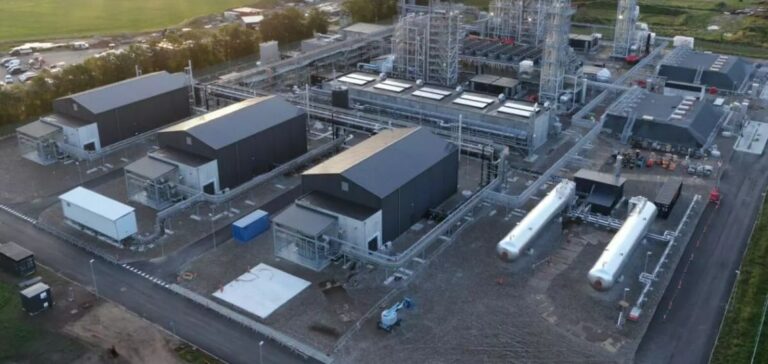European Energy and its subsidiary Ammongas are participating in a carbon capture and storage (CCS) project in Næstved, Denmark, alongside public waste management company AffaldPlus and engineering firm CarbonCuts. The project, which has now been prequalified under the Danish Energy Agency’s CCS support programme, targets the removal of up to 150,000 tons of carbon dioxide annually from residual waste incineration.
Located at AffaldPlus’ waste treatment site, the project includes the development of a full-scale industrial CO₂ capture facility capable of handling all emissions from the plant. The goal is to establish a complete value chain from capture to final carbon storage, incorporating liquefaction technology for transporting CO₂ to storage locations.
A project led by a consortium with complementary expertise
European Energy, responsible for project development, will leverage its experience in engineering and managing complex energy infrastructure. Ammongas will provide its CO₂ capture and liquefaction technologies, previously implemented in projects such as the LCO₂ plant in Tønder.
“Our role is to ensure efficient and reliable CO₂ capture,” said Jaime Casasus-Bribian, Chief Executive Officer of Ammongas and Director of Power-to-X and CCS at European Energy. He added that the company would apply its expertise across the carbon value chain to support the project’s execution.
Next step: securing funding
Prequalification clears the path for fundraising. The consortium anticipates a combination of public and private investment to finance the project. The next phase will also involve an acceleration of technical development to ensure the facility’s operational feasibility.
AffaldPlus, which operates the local incineration plant, will coordinate on-site activities. “This project shows that provinces can also take a leading role in the energy transition,” said Ole J. Andersen, Energy Manager at AffaldPlus. He noted that the initiative positions the South Zealand region as a key contributor to Denmark’s national climate effort.
A national framework encouraging CCS technologies
The Danish Energy Agency’s support is part of a broader strategy to strengthen carbon capture and storage technologies across the country. The CCS grant programme aims to drive investments in regions beyond major cities, promoting a more balanced geographic distribution of emission reduction efforts.
The Næstved project exemplifies industrial and public infrastructure actors aligning around a shared value chain, amid growing demand for direct CO₂ reduction solutions in the European market.






















